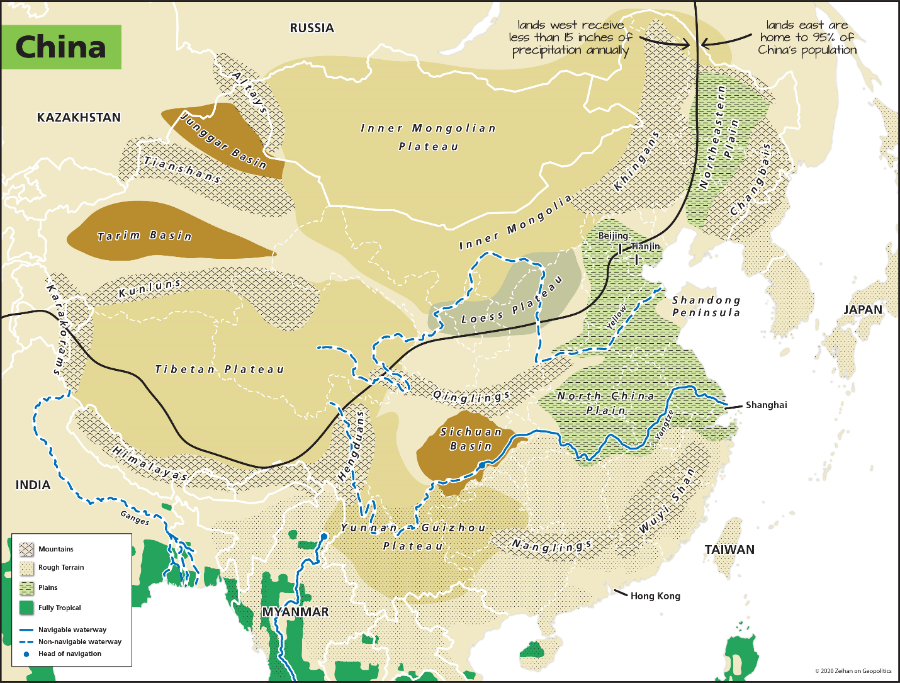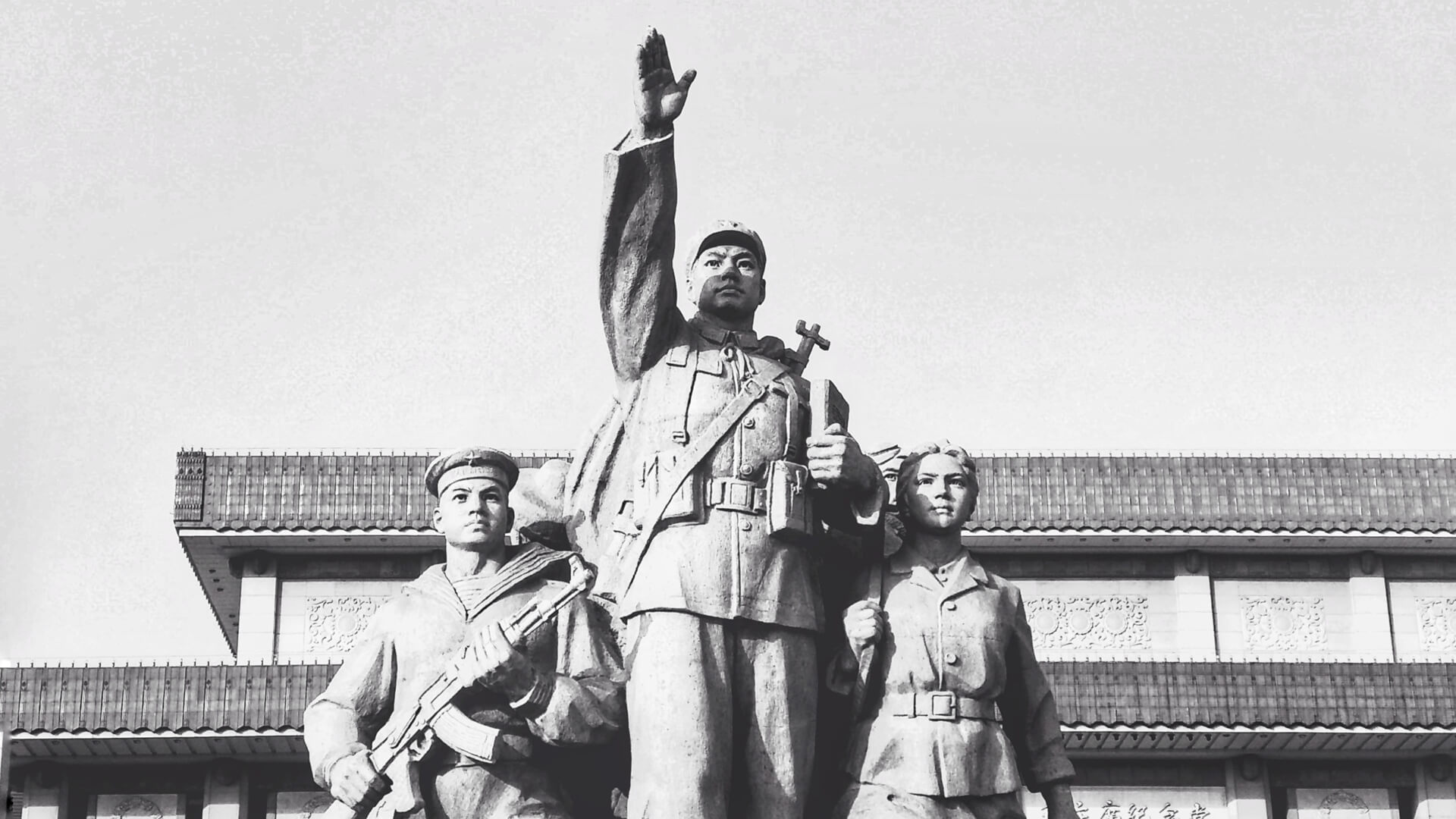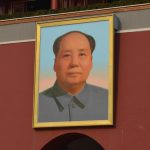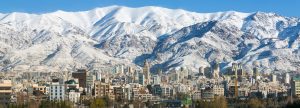I recently had the opportunity to be in New Zealand and Australia for a few days. Being on the opposite side of the planet is a bit magical – and I’m not talking about the people, culture, topography, food or alcohol. It’s the fact that the Australasian countries are more than a half-day ahead of the U.S. news cycle. As a forecaster the idea that my day begins fifteen hours earlier in Sydney than back in the States gives me the sort of giddy excitement that I’m sure bubbles up from new companions of Doctor Who.
In part it is because all the inanity of American media’s ongoing obsession with the less important dramas consuming Congress and TeamTrump are (thankfully) muted, while all things Asian are loud and proud. I’d like to think that I would have noticed what’s going on in China regardless, but Down Under it is absolutely unavoidable. Events are pushing rapidly toward the cataclysmic, and how they unfold in the next few weeks will determine much about how China evolves – or devolves – for the decade to come.
There’s quite a bit of backstory for this one. Chinese history is less a straight path from here to there and more a tangle of knotted social, cultural, technological, economic, political and strategic threads. As such this newsletter will read a bit like a mosaic. There’s a lot going on and a lot of long-term trends all coming to a head at the same time. That, and I get a sort of perverse satisfaction writing things that I know will be blocked in other countries. Anywho, buckle up.
In recent decades the primary source of legitimacy for the Chinese Communist Party has been the delivery of steadily improving job security, growing wages and all the things that go along with economic growth… but such wasn’t always the case. Pre-1970 legitimacy flowed from the delivering of beatings. Anyone who challenged state rule could look forward to being beaten into submission, assuming they weren’t summarily imprisoned and/or executed.
But in 1972 that bleeding heart liberal Richard Nixon travelled to China and struck a deal: America would admit China into its global Order of security and trade on the condition that China solidify its recent split with the Soviet Union. The Sino-American rapprochement reworked the Cold War and was one of the phalanx of factors that ultimately crushed the Soviet Union.
For the CCP, the decision was not one to be made lightly, and not simply because the Soviet Union had a lot of nuclear weapons and the Russians tend towards historical umbrage as a leading motivator. Chinese history is not a tale of wealth and unity, but instead of chaos and privation. The Chinese heartland in the north is too big to be easily consolidated, and too exposed to the outside world to be easily defended. While the Brits were able to become British in the relative isolation of their island, and the Russians were able to steadily expand their writ throughout the lightly populated Eurasian steppe, Chinese history is a tale of warlords and collapsed imperial systems that just couldn’t make it stick.

It’s a simple issue of geography. China is mammoth in size, but it lacks the sort of internal riverine transport network that would enable pre-industrial Chinese authority to reliably project power to its own periphery. Combine poor transport options with high population densities and China suffers from a center that cannot impose its will on its outlands on its worst days, and outlands that cannot become strong enough to fully resist central control on their best days. The whole place spins apart and crashes together with regularity – and that even before one considers the predations of outsiders. For the millennia of Chinese history, the “country” of China has really only held together as a unified political entity for about three centuries, and half of that was under Mongol occupation.
Half of what’s left is during the American-led Order since the end of WWII. Part and parcel of the Order’s system was the elimination of empires. For the Chinese who had been under the boot of the Japanese and Europeans during their “century of humiliation,” this was a critical factor. Once the Chinese civil war ended with Chiang Kai-shek’s retreat to Taiwan, Mao Zedong was able to finally consolidate control of all of China under a single government.
While the strategic implications of the CCP’s 1970s decision to formally join the American-led Order were robust, the decision was still beyond risky. It meant purposefully flooding the country with mammoth economic and technological changes. It subjected poor-but-unified Maoist China to nearly everything that had in ages past wrecked China: outside influence, shifting economic norms, new ideas, internal migration.
In the years that followed, the Communist Party fundamentally reworked its economic system to take full advantage of their new global access. It wasn’t exactly swords-to-plowshares, but it certainly included rapid development and industrialization of the Chinese coast.
This transformation required a different sort of educational system. Or more accurately, it required an educational system worthy of the name: less blind ideology and Mao-chants and more math and management skills. The effort of achieving mass literacy had many effects and side effects, but one aspect is something Americans can identify with intimately:
Chinese parents didn’t want their kids eking out a meagre existence on subsistence farms, but instead wanted them to earn advanced degrees, wear suits and work in climate-controlled offices. China’s changing economic life may have required a more educated workforce, but just as American parents’ predilections oversupplied the American job market with white collar workers, so too did the preferences of Chinese parents. By the late 1980s it had become apparent that many of China’s twentysomethings were trained for the wrong things.
So they did what twentysomethings do: they complained about it. At a party. All at once. All in the same place. In Tiananmen Square. In 1989.
The Tiananmen protests were not about democracy, or at least not at first. They were about an entire generation who had known nothing but upwardly rising standards of living for their entire lives, who suddenly discovered the world wasn’t going to be quite as packed with golden eggs as state propaganda had promised.
The economic changes wrought by China’s post-Nixon opening pushed the CCP well out of their comfort zone. The protests, in a manner of speaking, pushed the CCP back into its comfort zone. The club returned, the CCP deployed tanks to Tiananmen, killing thousands of Chinese young people.
It is about to happen all over again.








